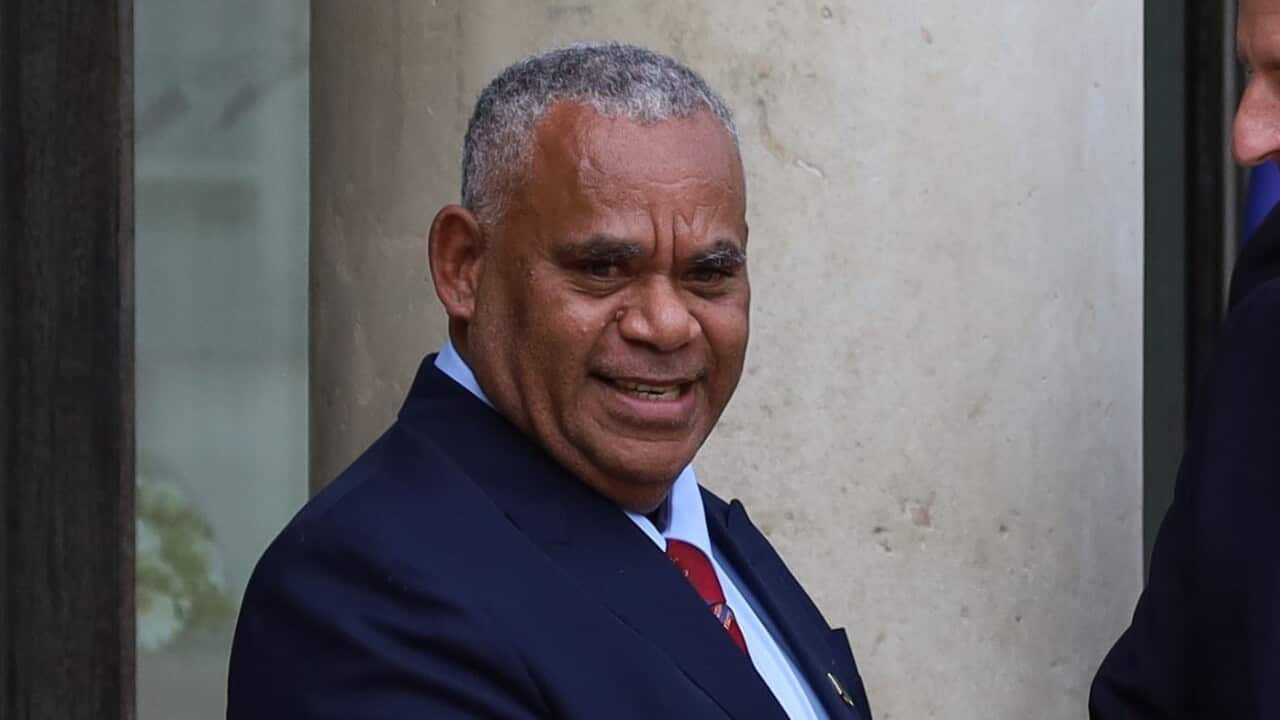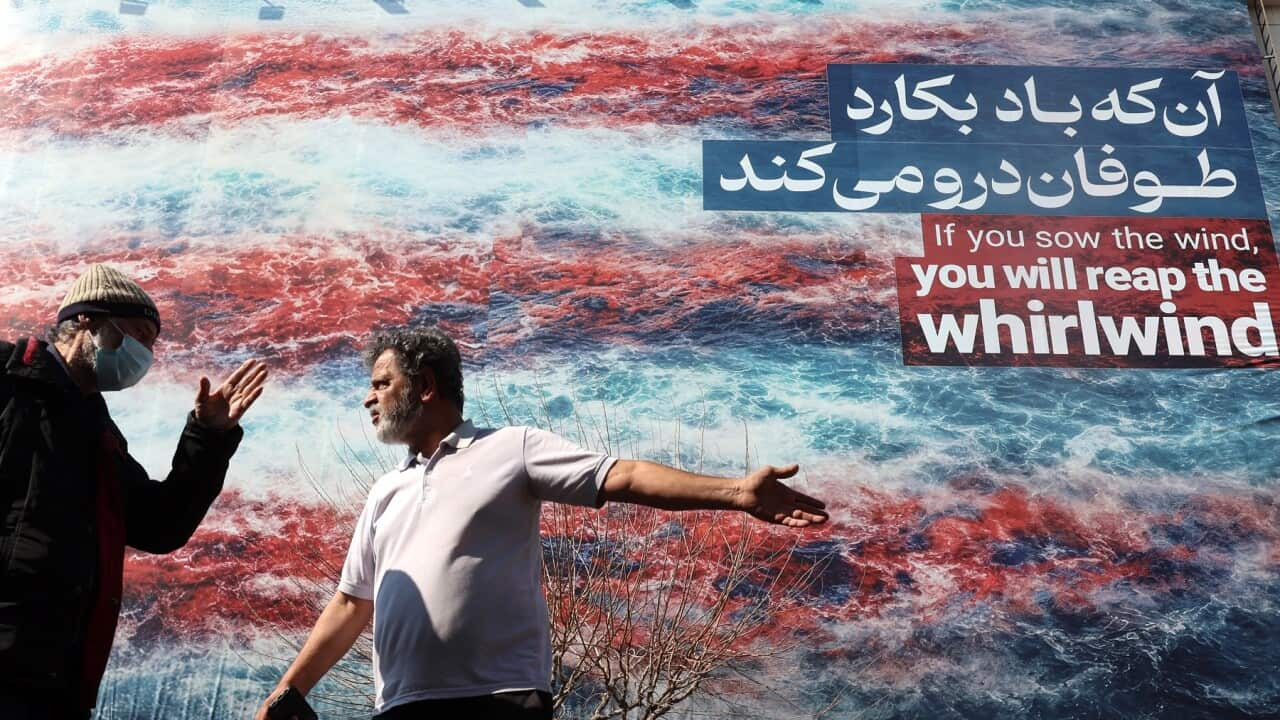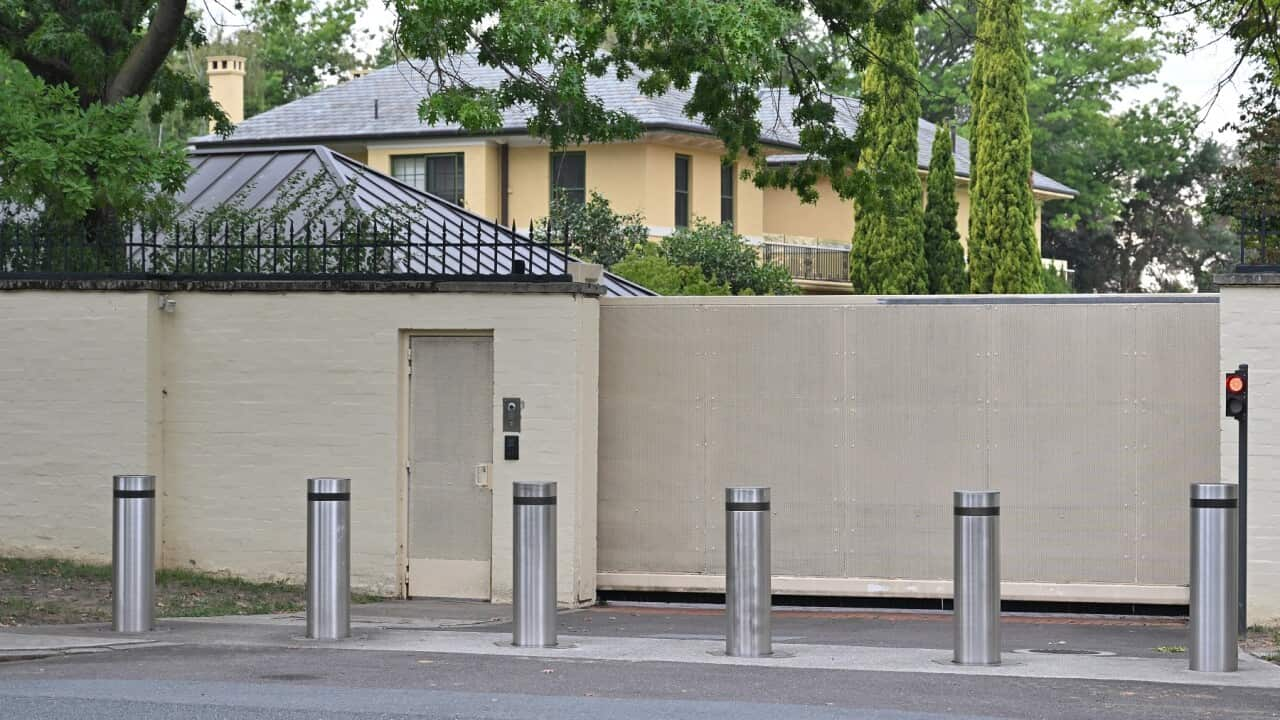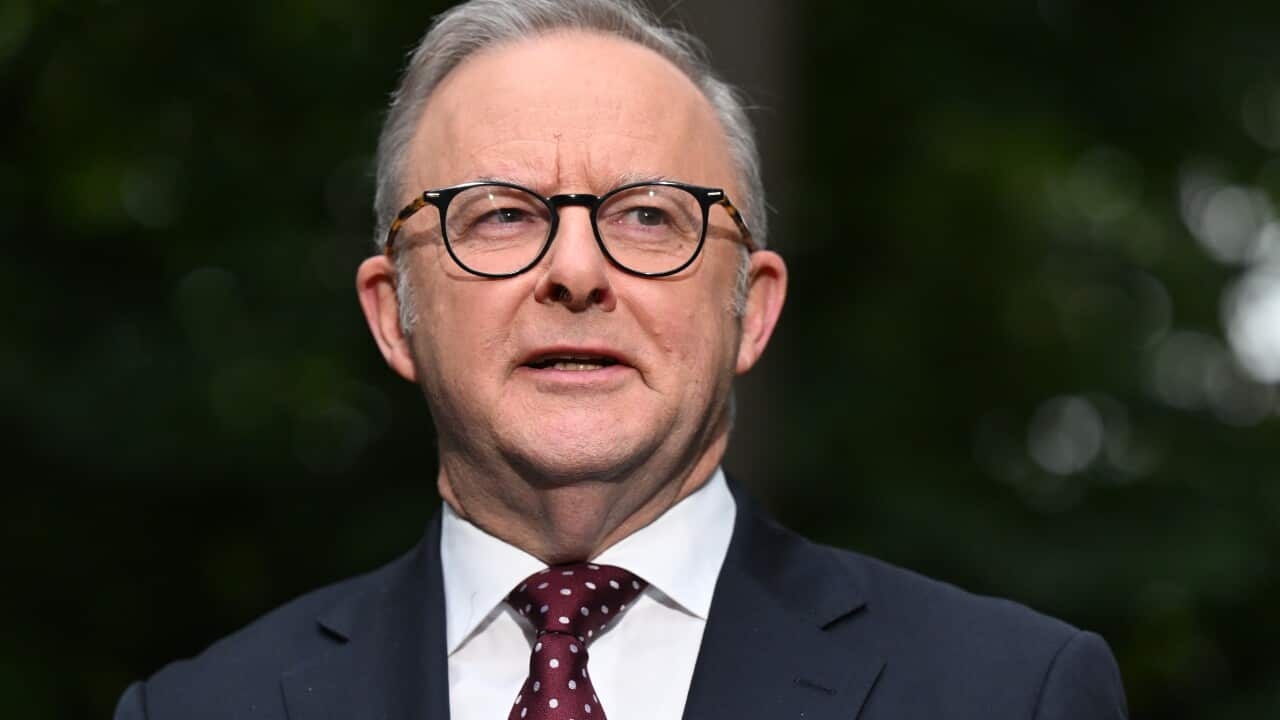Listen to Australian and world news, and follow trending topics with SBS News Podcasts.
TRANSCRIPT:
After months of negotiations, the signing of a $500 million security pact between Vanuatu and Australia has been delayed.
Heading to the Pacific Island's capital of Port Vila on Tuesday, Prime Minister Anthony Albanese was expected to sign the Nakamal agreement.
But on the morning of his trip, he told ABC Radio National it wasn't likely to happen.
"I wouldn't expect that it will be signed today, but what we will do is to progress it today, to have that conversation, and I look forward to doing it. We have a good relationship. I have a good relationship with the Prime Minister. Vanuatu politics can be very complex, as I'm sure you're aware Sally, so I look forward to a constructive discussion, and then travelling on to the Solomon Islands for the Pacific Islands Forum."
Upon landing in Port Vila, the future of the bilateral security and economic agreement was still uncertain.
While details of the deal remain unknown, it is believed to contain significant security elements, which some speculate focus on decreasing China's policing presence on Vanuatu.
A security agreement with Vanuatu failed in 2022, after the parliament voted against it amid concerns the deal was inconsistent with Vanuatu's practice of non-alignment in foreign policy.
When asked about delays, Prime Minister Jotham Napat says that Vanuatu must retain its sovereignty, meaning Australia cannot dictate which partners provide assistance.
"I had to allow the Nakamal agreement to go to different stages within the coalition partners, some of my ministers and my MPs, they feel like it requires more discussions, particularly on some of the specific workings of the agreement."
Experts say the Nakamal agreement is unlikely to go as far as Australia's agreements with Tuvalu or Nauru, which effectively grant the Australian government veto powers over the country's external security agreements.
In a visit to Vanuatu in August, Defence Minister Richard Marles and Foreign Minister Penny Wong paved the way for the Nakamal deal when they initialled the agreement.
Despite the delays, Anthony Albanese says he is confident that a deal will be ratified when the time is right.
"Well, let's be very clear, there is agreement on the principles that have been agreed and initialled in the Nakamal agreement. It's a matter of processes going through. I respect the processes that Prime Minister Napat needs to go through. We both sides will go through our processes, but we're very confident that the agreement can be reached, and I'm reassured by the discussion that I've had with the Prime Minister."
After Vanuatu, the Prime Minister join other Pacific leaders in Solomon Islands for the annual Pacific Islands Forum.
Australia and China both have strategic interests in maintaining influence over the Pacific Region.
Dr Wesley Morgan is a research associate with the Institute for Climate Risk & Response at the University of New South Wales.
He says if Australia wants to win over the favour of its Pacific neighbours, it will have to take their concerns about climate change seriously.
"Australia is deeply concerned about China's growing influence in the region. So in 2022 China signed a security deal with Solomon Islands, and Australia is keen to avoid a situation where other countries sign security deals with China. For their part, Pacific Island countries are crystal clear that climate change is their single greatest security threat. So if Australia is to really cement its place as a security partner for Pacific governments, Australia will need to be taking action to address climate change, and that means setting as strong a target as possible to cut emissions over the next decade."













